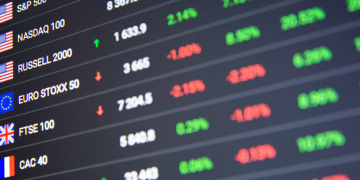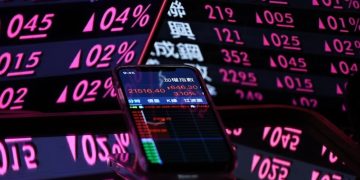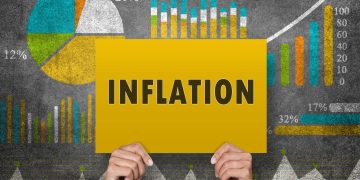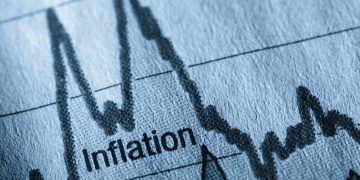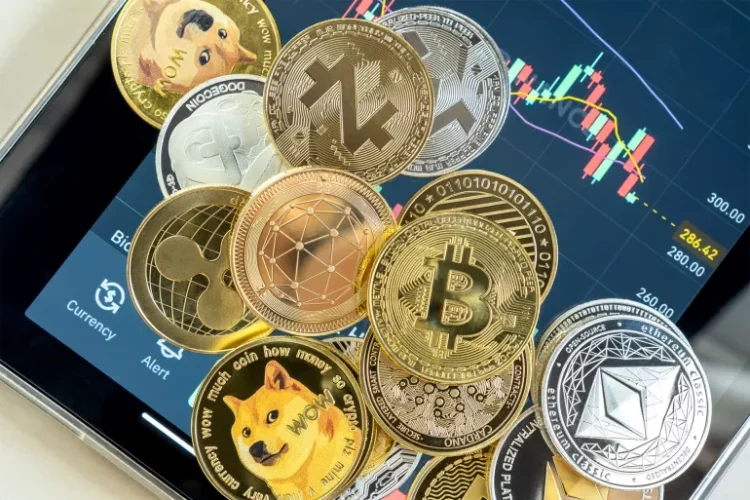Introduction
In recent years, digital currencies have evolved from an experimental technology to a mainstream financial phenomenon. From the pioneering success of Bitcoin to the rapid growth of central bank digital currencies (CBDCs), the world is witnessing a transformative moment in the evolution of money. Digital currencies, once relegated to the fringes of the financial system, are now viewed by many as a viable alternative to traditional fiat currencies.
This shift raises a critical question: does the rise of digital currencies signal a fundamental transformation in the global monetary system, or are they merely an evolution within the existing financial infrastructure? To answer this, we must explore how digital currencies function, the motivations behind their rise, and the potential long-term implications they hold for global finance, central banks, and the broader economy.
1. The Evolution of Money and the Rise of Digital Currencies
1.1 From Barter to Fiat: The History of Money
To understand the significance of digital currencies, it is essential to first recognize the evolution of money itself. Money, in its various forms, has served as a medium of exchange, store of value, unit of account, and standard of deferred payment throughout human history. From ancient barter systems to the emergence of commodity money like gold and silver, and later, the advent of fiat currencies backed by governments, money has always adapted to the needs of society and the global economy.
- Commodity Money: Early forms of money were commodities like grain, cattle, or precious metals, which held intrinsic value.
- Fiat Money: By the 20th century, most countries transitioned to fiat money—currencies not backed by physical commodities but rather by government trust and legal decrees. The US dollar, the Euro, and the Japanese yen are all examples of fiat currencies.
Digital currencies represent the latest step in this evolution, driven by technological advancements, financial innovation, and the desire to create more efficient, decentralized financial systems.
1.2 The Birth of Cryptocurrencies and Blockchain Technology
Cryptocurrencies, such as Bitcoin, were introduced as a new form of digital money that operates outside traditional banking systems. Bitcoin, the first decentralized cryptocurrency, emerged in 2009 as an alternative to centralized currencies controlled by governments and financial institutions. Built on blockchain technology, cryptocurrencies offer secure, peer-to-peer transactions that are transparent, irreversible, and independent of traditional intermediaries.
- Decentralization: The defining characteristic of cryptocurrencies like Bitcoin and Ethereum is their decentralized nature. They operate on blockchain networks, where transactions are verified and recorded by a distributed ledger maintained by thousands of independent nodes, rather than a central authority.
- Security and Anonymity: Cryptocurrencies offer enhanced security features, such as cryptographic encryption, that make them less vulnerable to fraud and hacking. Additionally, many cryptocurrencies offer a degree of privacy, which appeals to individuals seeking financial anonymity.
While cryptocurrencies are still relatively new and volatile, they have gained significant traction among investors, tech enthusiasts, and even governments. Some countries, such as El Salvador, have adopted Bitcoin as legal tender, while others have launched their own central bank digital currencies (CBDCs).
2. The Case for a Fundamental Change in the Global Monetary System
2.1 Decentralization vs. Centralization
At the heart of the digital currency debate is the tension between decentralization and centralization. Traditional fiat currencies are centrally controlled by governments and central banks, which determine monetary policy, manage interest rates, and control inflation. In contrast, cryptocurrencies are decentralized, meaning they operate without a central governing authority. This creates a fundamental philosophical difference in how money is managed.
- Decentralization: Cryptocurrencies like Bitcoin and Ethereum operate without the need for central banks or governments. This could challenge the existing financial architecture by reducing the control that central authorities have over the money supply, interest rates, and inflation.
- CBDCs and Centralization: On the other hand, central banks are exploring their own digital currencies (CBDCs) to digitize fiat money while retaining central control over the monetary system. CBDCs could offer the benefits of digital currencies—such as faster, cheaper transactions—while maintaining the authority of central banks to manage monetary policy.
The rise of cryptocurrencies and the growing interest in CBDCs indicate a potential shift toward a more diverse and decentralized monetary landscape. However, the question remains whether this will lead to the collapse of traditional central banking systems or coexist with them.
2.2 Disruption of Traditional Banking and Financial Institutions
Digital currencies have the potential to disrupt the traditional banking and financial sectors by eliminating intermediaries in payments, lending, and investments. The decentralized nature of cryptocurrencies means that individuals can send money across borders without the need for banks or payment processors. This could significantly reduce the cost and time involved in financial transactions, especially for cross-border payments.
- Peer-to-Peer Transactions: Cryptocurrencies enable individuals to transact directly with one another, bypassing banks and other intermediaries. This could lead to a more democratized financial system, where individuals have greater control over their assets.
- Banking the Unbanked: One of the most promising applications of cryptocurrencies is their potential to provide financial services to the unbanked—those without access to traditional banking. In regions with limited access to banking infrastructure, digital currencies could offer an alternative means of saving, transferring, and investing money.
However, the disruption of traditional financial systems also presents challenges. Banks, which have long been the primary institutions for managing the money supply and providing credit, could face a loss of control over financial flows. Moreover, digital currencies may create new risks related to volatility, fraud, and regulatory oversight.
2.3 Monetary Policy and Inflation Control
One of the primary roles of central banks is to regulate the money supply and control inflation through monetary policy tools, such as interest rates and quantitative easing. The rise of digital currencies—particularly decentralized ones—could challenge this function by making it harder for central banks to control the money supply.
- Fixed Supply and Inflation Resistance: Cryptocurrencies like Bitcoin have a fixed supply—there will only ever be 21 million Bitcoins in existence. This characteristic makes Bitcoin resistant to inflation, as its value cannot be artificially inflated by central banks. As a result, Bitcoin and other cryptocurrencies could offer a hedge against inflation, making them attractive during periods of economic instability.
- Implications for Central Banks: If digital currencies become widely adopted, central banks could face challenges in controlling inflation and managing the money supply. For example, the decentralized nature of Bitcoin means that its value is driven by market forces rather than the policies of central banks. Central banks may also struggle to implement traditional monetary policies, such as interest rate adjustments, in a world where digital currencies dominate.
On the other hand, CBDCs would allow central banks to maintain control over monetary policy while offering the benefits of digital currency. CBDCs could make monetary policy more effective by providing a direct means of influencing the money supply and interest rates.

3. The Future of Digital Currencies in the Global Monetary System
3.1 Regulatory Challenges and Legal Uncertainty
Despite the promise of digital currencies, they face significant regulatory challenges. Governments and financial institutions are grappling with how to regulate digital currencies, prevent illegal activities (such as money laundering and fraud), and ensure that they comply with existing financial laws.
- Legalization and Regulation: Some countries, like China, have taken a hard stance against cryptocurrencies, while others, such as the United States, are still working to establish comprehensive regulatory frameworks. As digital currencies grow in popularity, the pressure for clear and consistent regulation will increase.
- Regulation of CBDCs: While CBDCs offer central banks greater control, they also raise concerns related to privacy and surveillance. The implementation of CBDCs could give governments unprecedented access to financial transactions, leading to debates about the balance between convenience and personal privacy.
3.2 The Rise of Digital Sovereign Currencies
CBDCs represent the next frontier in digital currency development. Countries like China, the European Union, and Sweden are already experimenting with their own digital versions of fiat currencies, and other countries are expected to follow suit. These state-backed digital currencies could provide the benefits of digital currencies, such as faster transactions and greater efficiency, while maintaining the stability and control that comes with central banking.
- State-backed Stability: CBDCs would be backed by the full faith and credit of the issuing government, providing a more stable alternative to decentralized cryptocurrencies. This could make CBDCs more attractive to the general public and businesses, as they would be less volatile than assets like Bitcoin.
- Global Reserve Currency: In the future, we could see CBDCs playing a key role in the global monetary system, potentially even competing with the US dollar as the dominant reserve currency. The introduction of a digital dollar, for example, could have significant implications for global trade and finance.
Conclusion
The rise of digital currencies, both decentralized cryptocurrencies and state-backed CBDCs, represents a profound shift in the global monetary system. While digital currencies offer the potential for greater financial inclusion, faster transactions, and reduced reliance on traditional intermediaries, they also challenge existing systems of monetary control, regulation, and financial stability.
Whether digital currencies will lead to a fundamental transformation of the global monetary system remains uncertain. However, one thing is clear: the future of money is digital, and the current financial system will need to adapt to this new reality. The adoption of digital currencies, alongside the rise of blockchain technology, could lead to a more decentralized and transparent financial ecosystem, but it will also require new regulatory frameworks and an evolution in how central banks manage monetary policy.
As the world moves toward this digital future, the balance between decentralization and centralization, security and privacy, innovation and regulation, will define the trajectory of the global monetary system.



















